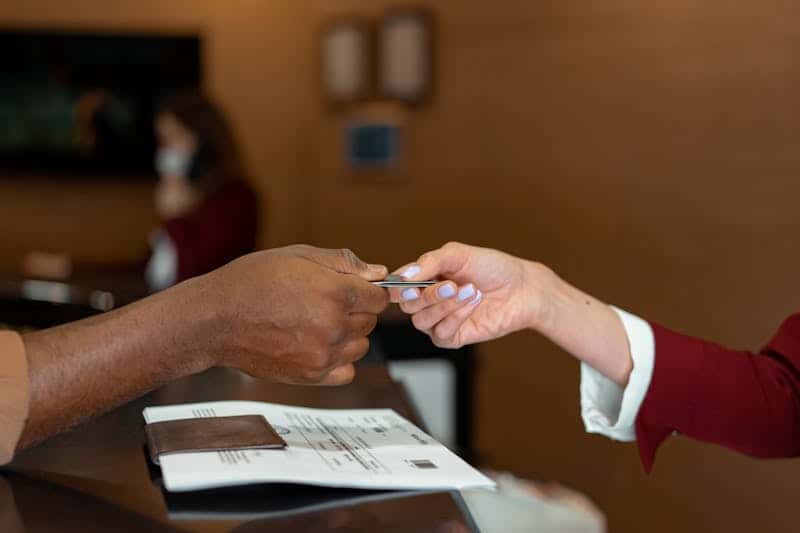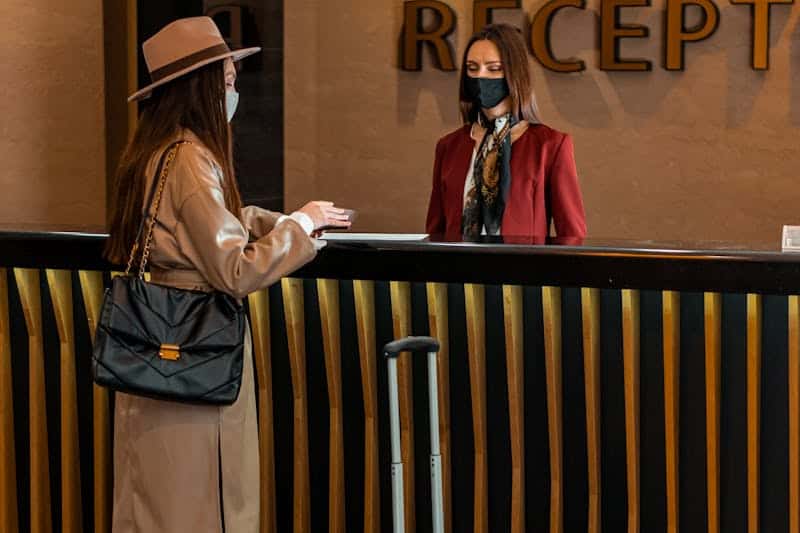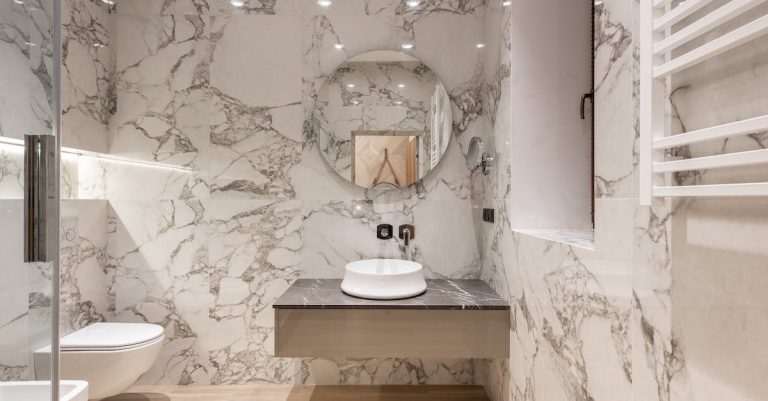When booking a hotel stay, you may wish to pay with someone else’s credit card at check-in. This raises the question – does the name on the credit card have to match your ID?
The short answer is: It depends on the hotel’s policy, but generally they do not have to match. Hotels are primarily concerned with receiving payment.
In this comprehensive guide, we will dive into hotel policies around matching credit cards and ID. You’ll learn what major hotel chains require, best practices for third-party bookings, and steps to minimize issues.
With tips on adding authorized users, supplementary cards, and explaining situations to staff, you can understand when names need to match or if there is flexibility.
Standard Hotel Check-In Procedures
When it comes to checking in at a hotel, there are certain procedures that are commonly followed. These procedures are in place to ensure a smooth and hassle-free experience for both the guests and the hotel staff.
Understanding these standard hotel check-in procedures can help you have a seamless stay at any hotel.
Hotels mainly want payment guarantee
One of the main reasons hotels require a credit card during check-in is to have a guarantee of payment for the stay.
By providing your credit card information, you are giving the hotel permission to charge the cost of your stay, including any additional charges such as room service or minibar expenses, to your credit card.
This helps hotels avoid any potential issues with unpaid bills and ensures that they can provide their services without any financial risk.

Names don’t have to match for basic stays
Contrary to popular belief, the name on your credit card does not necessarily have to match the name on your ID for basic hotel stays. Hotels understand that many people may be booking rooms on behalf of someone else or using corporate credit cards.
As long as the credit card is valid and can be charged, most hotels will accept it for payment, even if the name on the card is different from the ID.
ID verifies identity, card for payment
While the name on the credit card may not have to match the ID, the purpose of presenting an ID during check-in is to verify your identity.
Hotels require an ID to ensure that the person checking in is the same person who made the reservation. This helps maintain security and prevent fraudulent activities. The credit card, on the other hand, is mainly used for payment purposes.
Large authorization is placed on card
It’s important to note that when you check-in at a hotel, a large authorization amount may be placed on your credit card. This is to cover any potential incidental charges that you may incur during your stay.
The actual amount authorized varies from hotel to hotel, but it’s typically higher than the cost of the room itself. Keep in mind that this is not an actual charge, but it may temporarily impact your available credit limit until the hold is released.
Exceptions and Special Cases
While it is generally required for the credit card to match the ID during hotel check-in, there are some exceptions and special cases where this rule may not apply. These exceptions can vary depending on the hotel’s policies and the specific circumstances of the guest’s stay.
Here are a few scenarios where the credit card may not necessarily have to match the ID:
Prepaid stays may require ID match
In cases where the hotel stay has been prepaid, such as through a travel agency or an online booking platform, the credit card may not need to match the ID.
This is because the payment has already been processed and verified by the third-party provider. However, it is still advisable to carry a valid ID for identification purposes.
Age verification necessary with minors
Hotels may require the credit card to match the ID when a minor is checking-in.
This is done to ensure that the accompanying adult is the legal guardian or parent of the child. It helps to prevent any unauthorized individuals from checking in with a minor.

Higher security for expensive rooms
For guests booking expensive rooms or suites, hotels may have stricter security measures in place.
In such cases, the credit card used for payment may be required to match the ID to prevent any fraudulent activities. This is done to protect both the hotel and the guest from any potential financial risks.
International travelers should have passport
For international travelers, it is highly recommended to carry a valid passport during hotel check-in. While the credit card may not necessarily need to match the ID, having a passport provides a reliable form of identification and can help expedite the check-in process.
It is important to note that these exceptions and special cases can vary from hotel to hotel. It is always advisable to check with the specific hotel’s policies before making a reservation or checking in.
Booking With a Third-Party Site
When booking a hotel through a third-party site, it is important to ensure that the credit card details provided during the booking process match the identification you will be presenting at check-in.
This is because hotels have strict policies in place to prevent fraud and protect their guests.
Provide matching details during booking
During the booking process, third-party sites will typically require you to enter your credit card information. It is crucial to provide accurate and matching details, including the name on the card and the billing address.
This ensures that the hotel can verify your identity and process the payment without any issues.

Contact site ahead to update info
If you realize that the credit card details you provided during the booking process do not match your identification, it is important to contact the third-party site as soon as possible.
They may be able to update the information on your reservation to ensure a smooth check-in process. Be prepared to provide valid reasons for the discrepancy and any necessary documentation to support your case.
Bring confirmation showing payment method
When checking in at the hotel, it is always a good idea to bring a copy of your reservation confirmation that clearly shows the payment method you used.
This can be helpful in case there are any issues or discrepancies during the check-in process. It is also a good practice to carry a valid photo ID, such as a driver’s license or passport, to verify your identity.
It is worth noting that hotel policies may vary, and it is recommended to check the specific terms and conditions of your booking before arrival. Some hotels may require additional verification steps, such as requesting a credit card authorization form or asking for an ID that matches the credit card used for payment.
If you have any concerns or questions regarding credit card and ID matching for hotel check-in, it is advisable to reach out to the hotel directly or consult the third-party site through which you made the reservation.
They will be able to provide you with the most accurate and up-to-date information regarding their policies and procedures.
Top Hotel Chains’ Policies
Marriott allows non-matching cards
When it comes to credit card policies for hotel check-ins, Marriott is known for its flexibility. Unlike some other hotel chains, Marriott allows guests to use credit cards that do not match their ID.
This means that as long as you have a valid credit card, you can book a room and check-in at any Marriott hotel without worrying about whether the name on your credit card matches your ID.
Hilton similarly flexible
Hilton is another hotel chain that understands the importance of convenience for travelers. They also do not require credit cards to match the ID during the check-in process.
This policy allows guests to use their preferred credit card for payment, regardless of whether the name on the card matches their identification.
Hyatt will accept with authorization
Hyatt has a slightly different policy compared to Marriott and Hilton. While they generally require the credit card to match the ID during check-in, they do make exceptions.
If you need to use a credit card that does not match your ID, you can contact the hotel in advance and ask for authorization. With proper authorization, you can still enjoy your stay at a Hyatt hotel even if the names on your credit card and ID do not match.
InterContinental respects privacy
InterContinental hotels prioritize the privacy and security of their guests. They do not require the credit card to match the ID during the check-in process.
This policy allows guests to maintain their privacy and use their preferred credit card for payment without any hassle.
In some cases, these hotels may request an authorization form from the original cardholder to ensure the cardholder approves the charges. They may ask for additional information or documentation to confirm the legitimacy of the reservation, especially if the card used for booking differs from the guest’s ID.
It’s important to note that while these policies are generally followed by the respective hotel chains, there may be individual hotel locations that have their own specific guidelines. It’s always a good idea to check with the specific hotel you plan to stay at to confirm their credit card policies.
Strategies to Avoid Issues
Add authorized user to card
If your credit card does not match your ID, one strategy to avoid issues during hotel check-in is to add an authorized user to your card. This allows someone else, such as a family member or friend, to use your credit card with their own ID.
By adding an authorized user, you can ensure that the cardholder’s name matches the ID presented at check-in, reducing the likelihood of any complications.
Supplemental card in your name
Another strategy is to request a supplemental card in your name from your credit card issuer. This card will have your name printed on it and can be used by someone else, such as a spouse or partner, to make reservations and check into hotels.
By having a supplemental card in your name, you can avoid any confusion or issues that may arise from mismatched names on the credit card and ID.
Notify hotel at booking
Prior to your arrival, it’s a good idea to notify the hotel about the situation. When making your reservation, inform the hotel staff that the credit card used for payment may have a different name from the person checking in.
This gives the hotel an opportunity to make note of the situation and potentially make arrangements to accommodate your needs without any hassle or confusion.
Explain situation politely
If you find yourself in a situation where your credit card does not match your ID and you have not taken any of the previous precautions, it is important to handle the situation politely. Explain the situation to the hotel staff, providing any necessary details, and ask if there are any alternative forms of payment or identification that they can accept.
Maintaining a calm and respectful demeanor can go a long way in resolving the issue smoothly and efficiently.

Conclusion
In most cases, the name on a credit card does not have to perfectly match the guest’s ID at hotel check-in. As long as the card is valid, hotels can authorize payment.
By communicating with the property ahead of time and adding authorized users when possible, you can minimize any confusion. With a polite explanation, staff will often accommodate your situation.
While they must verify ID, hotels ultimately aim to ensure they can collect payment for rooms. Focusing on that rather than matching names precisely enables many travelers to book stays hassle-free.






